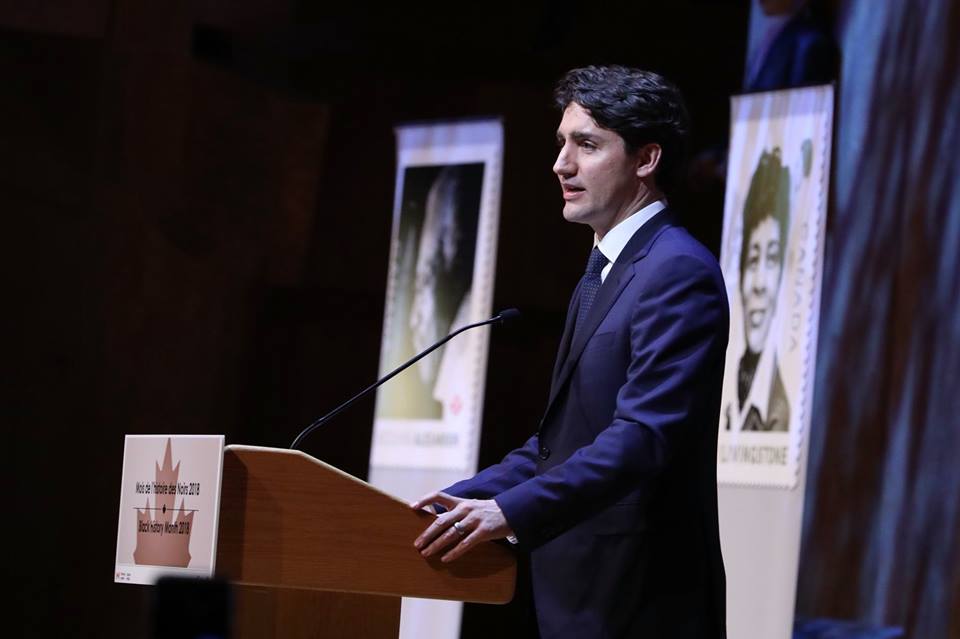
SASKATOON — The United States and Mexico both ratcheted up the pressure on Canada to sign on to a new NAFTA by month’s end or face exclusion from the continental trade pact — but the warnings Thursday did not appear to faze Justin Trudeau.
The prime minister made it clear that he won’t be rushed into accepting a deal that’s not in Canada’s best interests.
And at the moment, sources say what’s on offer would, in fact, be a bad deal for Canada.
The biggest sticking point is the Chapter 19 dispute resolution mechanism. The U.S. wants to scrap it and allow American courts to judge trade disputes, but Canada is insistent that some form of independent bi-national dispute resolution must be part of the deal.
Moreover, the sources, speaking on condition of anonymity due to the sensitivity of the talks, say the U.S. has so far refused to promise that punishing tariffs levied against Canadian steel and aluminum on national security grounds will be lifted if a deal is reached on NAFTA.
As well, there remain deep differences on intellectual property. The U.S. wants to extend patent protection for big pharmaceutical companies, which could hurt Canada’s generic drug industry.
U.S. demands for more stringent Buy American provisions for government procurement also remains unresolved.
U.S. President Donald Trump has railed about Canada’s supply management system that regulates the price of dairy, poultry and eggs. But Canadian officials say that dispute has been overblown.
Canada has already signalled its willingness to allow limited additional access for American dairy producers in the Canadian market — similar to what was agreed upon in the original Trans Pacific Partnership deal, as well as dropping a recently created new class of milk that effectively shut Americans out of the Canadian market for milk ingredients like protein concentrates, skim milk and whole milk powder.
Ottawa and Washington are working to reach an agreement by Sept. 30, the deadline by which the Trump administration must provide Congress with a preliminary text of the deal signed with Mexico in August.
The U.S. and Mexico are intent on wrapping up the matter before Dec. 1, when Mexico’s new president will be sworn in.
Trump has repeatedly said he’d be perfectly happy to proceed with the bilateral deal without Canada.
The Wall Street Journal reported Thursday that Trump mused about renaming the trade pact “USMC” — with “M” referring to Mexico and “C” for Canada.
The report said Trump groused about Canada’s negotiators and expressed his frustration with the neighbour to the North. He reportedly said he was willing to go ahead with a “USM” deal and drop the “C” if Canada didn’t sign on.
Late Thursday, Mexican chief negotiator Kenneth Smith Ramos tweeted that his country is fine with a bilateral deal as well.
“Mexico stated from the beginning of the negotiation that the ideal scenario is for NAFTA to remain trilateral,” he wrote. “We hope the U.S. and Canada will conclude their bilateral negotiation shortly. If that is not possible we are ready to advance bilaterally with the US.”
But Trudeau noted that multiple deadlines have been set — and passed — throughout the 13 months of negotiations.
“We have seen various deadlines put forward as markers to work for,” he said as he wrapped up a Liberal caucus retreat.
“We’re going to continue to work towards the right deal for Canadians, a good deal for Canadians, and we’ll do the work needed and try and get there as quick as we can, but we’re going to make sure we’re doing what is necessary to get the right deal for Canadians.”
Trudeau shrugged off Trump’s purported musings about a new moniker for the North American Free Trade Agreement, suggesting Canadian negotiators have better things to do than play name games.
They are focused on “a broad range of issues” that “will have a direct impact on Canadians’ jobs, on our economic growth and our prospects,” he said.
“These are things that we’re working on very seriously, rolling up our sleeves on. I don’t think we’ve spent much time talking about what the name or potential name or renaming could be,” he said.
Privately, senior Canadian officials are doubtful that Trump would get congressional approval for a trade deal that excluded Canada. Republican senators have been highly critical of such a scenario, with some going so far as to suggest Trump does not have legal authority to turn the three-country NAFTA into a bilateral deal between the U.S. and Mexico.
Trudeau’s comments came at the end of a caucus retreat aimed at plotting strategy for next week’s resumption of Parliament and laying the ground work for the run up to next year’s federal election.
At his closing news conference, Trudeau listed his priorities for the fall: introduction of pay equity legislation — first promised in this year’s budget — and ratification of a trade agreement with Pacific Rim nations, including Mexico.
He also said he decided there’s no need to prorogue Parliament and resume with a throne speech laying out a new agenda for the final year of his four-year mandate. There is still plenty to do to deliver on the agenda promised in the 2015 election and, in any event, Trudeau said that agenda is working to grow the economy and improve the lives of middle-class Canadians.
——
With files from Andy Blatchford in Ottawa.